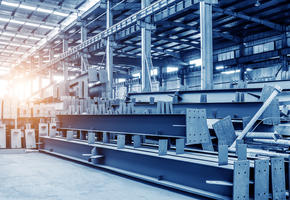For many years, one question remained unanswered in conversations about the world's net zero ambitions: What about the industrial sector?
On Tuesday of Climate Week NYC 2021, representatives from heavy industry gathered for "Demanding Net Zero Industry," a discussion of the developments, challenges and market conditions affecting the sector's move toward net zero.
The industry is at a critical tipping point
Faustine Delasalle, executive director of the Energy Transitions Commission and Mission Possible Partnership, emphasized a key message of the event. "We're not at the time of speeches anymore," she said.
While challenges and questions remain, the central idea of the conversation was clear. Demand signals are beginning to emerge, enabling industrial companies to take tangible steps toward a net zero 2050 — but there's no time to waste.
Companies are eager to participate in making the world a better place
Signs of progress are happening throughout the industrial sector. In September, global ball bearing and seal manufacturer SKF joined the global net zero steel initiative SteelZero, bringing the organization's membership to 11.
In the session’s first panel discussion, Delasalle noted that two critical milestones for industry have emerged since the Paris Agreement. The first involved the 2018 IPCC clarifying that every sector must reach net zero by 2050, forcing companies that felt "relatively safe" from climate measures to plan for drastic action. The second milestone came from the market. "We've seen increasing evidence that the transition is feasible," she said. "That financially this is something that the world can afford."
It's time to evolve from pledges to plans
However, Delasalle noted that the time to move from pledges to planning is imminent. "What we want to do over the next year is really do those sector transition strategies...so that we have the plan as soon as possible on how we're going to make this happen at a very granular level," she said. "Targets without investments associated to them are wishful thinking."
What policies mechanisms are necessary?
Not all the action required is on the private sector's shoulders. Speakers discussed the policies needed to support innovation and deployment of net zero technologies, as well as those supporting price parity across low-carbon and high-carbon solutions.
According to Laurent Chokoualé Datou, vice president of public affairs for the International Copper Association, industry leaders themselves are developing a global roadmap for decarbonizing the copper industry. This project will also bring the sector’s needs and potential solutions to policymakers' attention.
"The idea is to help frame and quantify realistic solutions and options across all three scopes of emissions that will act as a guide for the industry globally, and, indeed, its supply chain," Datou said. "We want to go to policymakers with solutions in order to debate, and hopefully arrive at, solutions that are win-wins for everyone concerned."
Turning the steel industry green will entail extraordinary efforts
A second "Demanding Net Zero Industry" panel focused on the steel supply chain, which impacts so much heavy industry worldwide. Led by ResponsibleSteel CEO Anne-Claire Howard, the discussion centered on the unique challenges of decarbonizing steel. These include building partnerships across the value chain, variations across geographies and the need for investment.
Value chain partnerships should be a priority
"We've been very open that we don't have all of the solutions today and acknowledge the fact that because we've included our scope three emissions...that we need to collaborate," said Cate Harris, the group head of sustainability and the Lendlease Foundation with real estate and investment company Lendlease.
"We need to start the conversation and the collaboration today with those important players across our supply chain if we are to stand a chance of creating the innovation and the change at the scale and pace that we need," she said.
Different regions are making different commitments
"A large part of our operation is in India, which has not come out with a clear commitment before this COP26 on how best the whole country actually looks at net-zero,” said Madhulika Sharma, chief of corporate sustainability with Tata Steel Limited. “That's an issue because India is also going to be a growth market for steel."
"That's a dilemma for leadership," she added. "We have to put in new steel plants here in the country, and then [decide] which technology to actually adopt because the net-zero technologies are not yet mature."
Investment must be handled wisely
"Our investors are coming up increasingly with ESG requirements," said Ralf Pfitzner, global head of sustainability with Volkswagen AG. "On the other hand, they also want to see reasonable margins and profits with their share investment, and therefore we also carefully have to deal with taking additional costs in our supply chains."
"Let's be clear: Decarbonizing steel is a massive systemic change and transformation requiring these trillions of investment and requiring also, in parallel, the build-out of renewable energies, which is also not going fast enough even in Europe," Pfitzner explained. "We have to de-risk these investments for investors, and then it comes to politics and politicians because we have to talk about the instruments that are appropriate to guide us through that transition."
At this global turning point, heavy industry will help us sink or swim
Participants in both "Demanding Net Zero" panels made clear that heavy industry is at an inflection point. "It's no longer just a discussion, but it's about action and companies, individuals taking real steps toward decarbonization," Howard said in summary. "2050 is a long way away, and we need to act now if we want to be within a chance of reaching the Paris Agreement goals."


